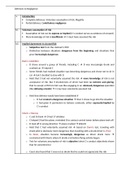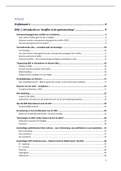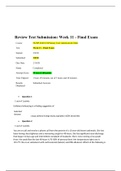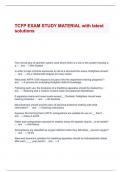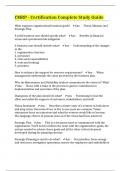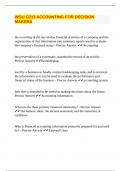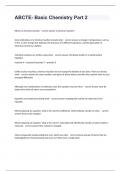Summary
Summary Negligence - Defences PQ Notes (First Class)
- Course
- Institution
Comprehensive first class Tort Law PQ notes from University College London (2010/2020). Notes include concise case summaries, key reasonings to reconcile conflicting case law and detailed answer outlines to problem questions
[Show more]
